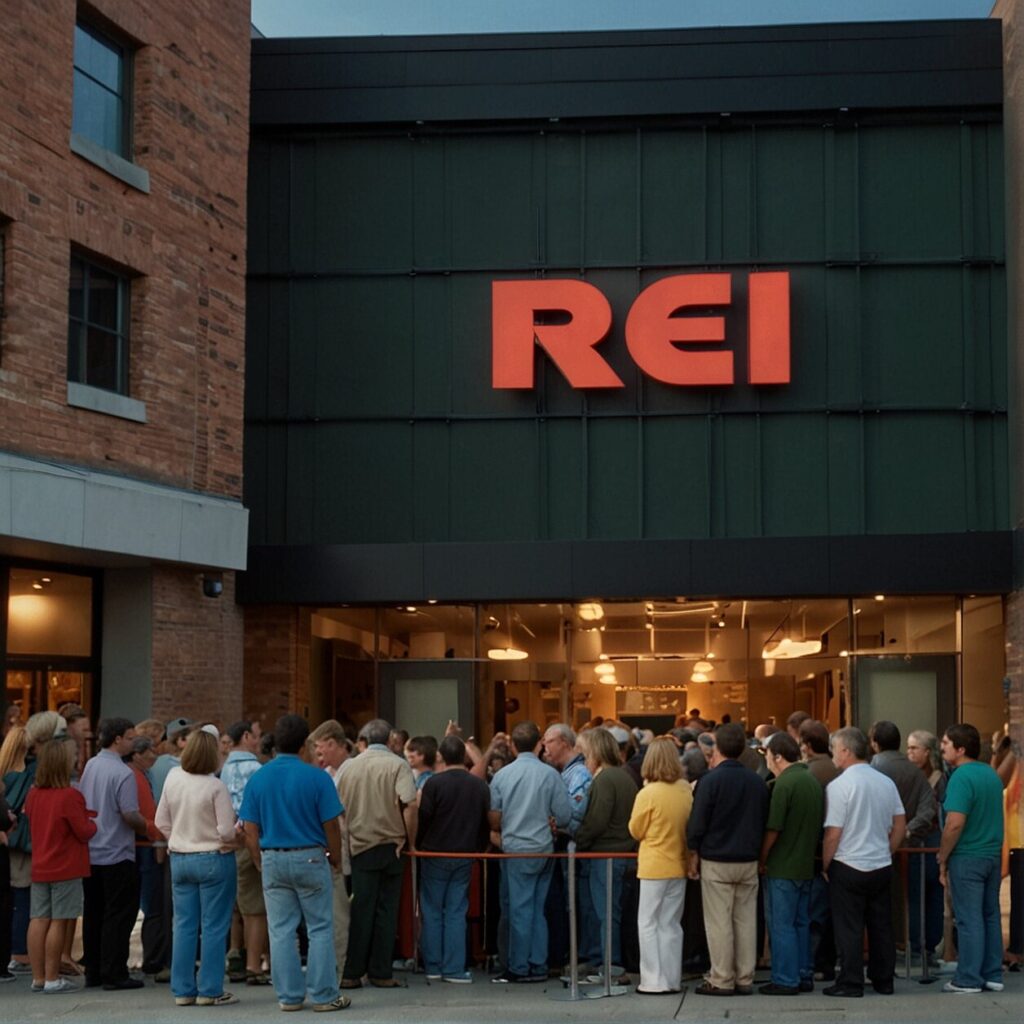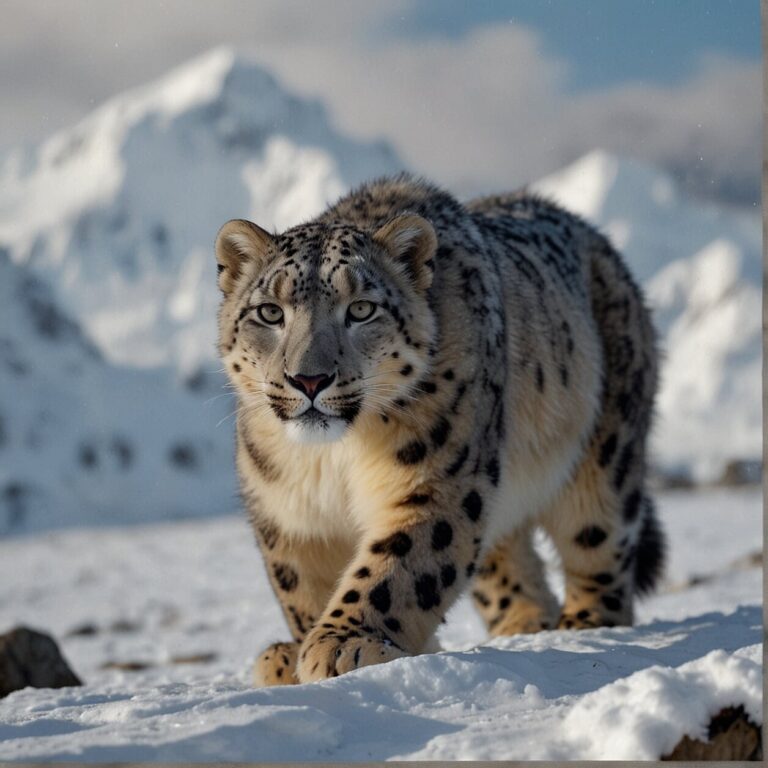The Inside Scoop: Exploring the Roots of REI and its Impact on Adventure Travel
Imagine a company born out of passion, nurtured by a devoted community and driven by the vision to make the adrenaline rush of adventure travel accessible to all. Reach back into the annals of history, trek through the peaks and valleys of the entrepreneurial journey, and you’ll find the humble beginnings of a titan in the adventure travel industry—Recreational Equipment, Inc., or as we fondly know it, REI.
Over the years, REI has grown from a small cooperative in Seattle to a nationwide institution, serving as a beacon for outdoor enthusiasts and adventure-seeking individuals alike. Their purpose, however, has remained beautifully consistent:
“To inspire, educate and outfit for a lifetime of outdoor adventure and stewardship.” – REI
In this article, we will embark on a journey of discovery, exploring the story of REI’s formation, its lineage of equipping adventurers, and how its stewardship has influenced not just its members but the entire adventure travel industry. Let’s take a walk down the trail of REI’s history and see how and why this company leads the pack when it comes to adventure travel. Buckle up, and let’s plunge into the riveting world of REI!
The Adventurous Beginnings: The Founding Story of REI
Akin to the serendipitous nature of any journey into the unknown, REI’s origin has its roots deep in the authentic spirit of adventure. It was founded by a group of 23 passionate mountain climber friends in the year 1938, settling in Seattle – a city famous for its enchanting landscapes, and bridging the gap between the wilderness and urbanity.
Primarily, REI was conceived as a cooperative, aiming to provide quality outdoor equipment at reasonable prices. The growth dripped slowly, but was steady. As the 1950s rolled around, their member base burgeoned to 3,000, and the annual sales reached $40,000, a substantial increase from their first decade in operation.
With every new decade, REI embraced challenges and expanded their operations, a testament to their dedication and respect for the adventurous spirit. They started the 1960s with 20,000 members, a single retail store in Seattle, and a cool $500,000 in annual sales. The 1970s presented a significant leap forward for the company. REI began the decade with over 200,000 members, two stores, and over $5 million in annual sales. Word was spreading about REI’s authentic commitment to fostering a love for the outdoors, and the people were responding.
By the 1980s, they had one million members and six retail stores with $50 million in annual sales. This was a pivotal time for REI as they evolved from a small cooperative to an influential entity in the outdoor adventure travel industry. They didn’t just sell gear, but promoted an outdoor lifestyle and a deep respect for Mother Nature. The realization that being outdoors was not just about confronting the elements but celebrating them became central to REI’s philosophy and ethos.
However, this period of growth was not without its trials and tribulations. They faced multiple challenges, from managing operational costs to evolving with the rapidly changing outdoor retail landscape. But REI, true to its adventurous spirit, overcame these adversities by focusing on its core principles of excellent customer service, product quality, and promoting an active lifestyle. They understood the pulse of their growing community and worked diligently to meet expectations and elevate their experiences, whether it was in-store or out exploring nature.
The landscape of Seattle and the surrounding wilderness served as not just a backdrop but a foreground to REI’s evolution from a niche co-operative to an adventure powerhouse. The REI story is one of a love for the wilderness and a relentless passion to share that love with everyone.

From Humble Beginnings to an Outdoor Giant: The Evolution of REI
Steering into the 1960s, REI had already established a robust membership base of 20,000, with one flagship retail store nestled in the heart of Seattle. The company was experiencing steady growth, boasting an impressive annual sales figure close to $500,000. These modest beginnings, however, were just the start of REI’s ascent to becoming a titan in the outdoor adventure travel industry.
Feeding off its flourishing momentum, REI made strides into the 70s, bringing with it nearly 200,000 members, two retail stores in Seattle, and a ballooning annual sales figure, smashing the $5 million benchmark. This decade saw crowds of outdoor enthusiasts gathering for the grand unveiling of REI’s first store outside of the Seattle area in the city of Berkeley, California, in 1975. Also, they launched their giving program in 1976—another testament of the company’s steadfast commitment to supporting and nurturing outdoor recreation.
The 80s heralded in yet more growth and expansion. With an astounding one million members, six retail stores spread across the United States, and an awe-inspiring $50 million in annual sales, REI had firmly cemented its position amongst the vanguards of the adventure travel industry.
In 1996, REI further extended its reach. On September 19, downtown Seattle saw the grand opening of the REI flagship store, a momentous event signaling the strength and dominion of the brand. Embracing the digital age, REI also launched REI.com in this year, serving as the largest outdoor gear and apparel store on the Internet.
{{PEOPLE}}{{NEWLINE}}Fast forward to 2011; an epoch-making year for REI as it expanded its arms to the Big Apple, setting up a three-level store within the historic walls of SoHo’s quintessential Puck Building.
Now, standing tall and strong 75 years on, with 129 stores and counting, REI has continued to lead and revolutionize the adventure travel industry. What started as a seed of a notion in Seattle has flourished into a global force, shaping the outdoor retail space now and, undoubtedly, for years to come.
REI’s Stewardship: Nurturing the Environment and Communities
In 2005, REI took a ground-breaking step by launching a comprehensive sustainability strategy. This was a public commitment to environmental stewardship, with an intention to support causes that align with this ethos. This clarified REI’s role not only as a provider of adventure travel gear, but also as an organism with a resolute dedication to preserving the environment that hosts all such adventures.
REI’s organization culture has an unwavering focus on outdoor-avid employees who are not only committed to the environment but also the communities they are part of. These individuals can often be counted upon to strive for a sustainable work-life balance and actively indulge in outdoor activities for fun. This kind of alignment between personal and corporate values often realized in dedicated community service and volunteering, further nurturing the spirit of stewardship.
In 2007, REI took a massive leap towards transparency with its first annual Stewardship Report. This report outlined the company’s progress and activities for the previous year in social and environmental areas. By openly communicating its efforts and achievements in these areas, REI underlines the seriousness of its commitment to its founding philosophy steeped in stewardship.
Take for example, the REI ‘Opt Outside’ initiative – it is more than just a PR strategy for the company. By taking a stand and closing its doors on one of the biggest sales days of the year – Black Friday, they celebrated the outdoors and encouraged customers to do the same. The company’s purposeful decision to forgo short-term profits demonstrates leadership and alignment with core communal values. This initiative transcended the boundaries of REI and has grown to embody the values of the broader outdoor community, representing a collective agreement to prioritize nature and outdoor activities over consumerism.
REI is a textbook example of a values-led company that successfully enables life outside for all. Embracing a philosophy that revolves around nurturing the environment and communities, REI sets the bar high for corporate stewardship in the adventure travel industry.

Embracing the Great Outdoors: How REI Promotes Active Lifestyles
REI’s drive for welcoming an active lifestyle extends beyond its products and services. It’s about building a community that values outdoor experiences and embraces nature. How does REI do that you might ask?
Initiatives like REI’s Opt Outside revolutionize the way the company and the entire outdoor community perceive recreation. Rather than promoting consumerism, REI encourages everyone to step outside and revel in the magnificent world of the great outdoors. It’s not just about the company; it’s about cultivating an appreciation for our earth and all the wonderful activities it offers.
REI also launched a state-of-the-art outdoor activity finder. With this tool, REI helps folks like you reconnect with your loved ones through invigorating outdoor activities. Whether you’re looking for a peaceful weekend camping trip or a thrilling mountain biking adventure, the outdoor activity finder suggests dynamic and engaging activities tailored to your interests. Not to mention, it’s a great place for inspiration when planning your next great adventure!
A part of promoting an active lifestyle is making sure everyone has a chance to participate. To fulfill this vision, REI launched REI Adventures in 1987. Offering unique itineraries focused on sustainable, human-powered adventure, REI Adventures takes people off the well-tread path to awe-inspiring destinations. You’re not just an observer on these trips—you’re an active participant, experiencing the thrill of adventuring through some of our planet’s most breath-taking regions.
So, in your quest to embrace an active lifestyle, remember: REI doesn’t just provide the gear you need for your journey. As a values-led company, REI helps you discover the joy of the outdoors, ensures you have a memorable adventure, and encourages you to tread lightly on our precious planet.
Breaking Down Barriers: REI’s Role in Making Adventure Travel Accessible
As a leader in the realm of adventure travel, REI has long aimed to bring the joy and benefits of outdoor recreation to as many people as possible. A dynamic blend of strategies helps them achieve this goal.
First among these has been REI’s innovative approach to equipment and resources. To tear down financial barriers to adventure travel, REI has devised unique programs like challenge grants. By submitting applications outlining the thrilling outdoor challenges they’d like to conquer, employees have the amazing opportunity to win necessary equipment. This initiative not only empowers employees with the tools to adventure but fosters a unique, adventure-focused spending culture.
Beyond equipment, knowledge is a vital element to safely and enjoyably experiencing the great outdoors. In response, REI developed a user-friendly outdoor activity finder. This tool has enabled countless individuals, families, and groups to find suitable adventures that match their skills and interests. The outdoor activity finder has also facilitated bonding experiences and reconnection amid nature – truly serving as a bridge to the outdoors.
Finally, REI prioritizes inclusivity and accessibility in its locations. For instance, there used to be an REI store in Japan. This not only illustrated REI’s commitment to spreading outdoor love globally but served as a tangible access point for adventure gear and expertise.
In conclusion, through strategic initiatives and tools, REI helps to make adventure travel accessible to everyone. By removing barriers and promoting inclusivity, they’re empowering millions to embrace the thrill of the great outdoors, irrevocably changing the narrative of adventure travel in the process.
FAQ’S
As we’ve journeyed through REI’s impactful story, you might find yourself brimming with questions about REI’s unique aspects, its transformative role in adventure travel, and what lessons can be gleaned from its rich history. Perhaps you’re curious about REI’s notable achievements, or the challenges they’ve faced and how they’ve emerged victorious. So, let’s delve into the answers right here in our FAQ section, where we’ve got you covered with responses to some of the most frequently asked questions about REI.
What makes REI unique in the adventure travel industry?
When we talk about REI’s uniqueness in the adventure travel industry, we’re not just speaking about their wide range of quality gear and classes. Their founding philosophy is what really sets them apart. REI was established by Lloyd and Mary Anderson 65 years ago as a cooperative, making it a member-owned and operated entity instead of being dictated by external shareholders. Their concept was simple but powerful: offering trustworthy equipment for climbers and challenging the conventional retail model.
This co-operative spirit is still alive at REI today, and is a core reason for their unique position in this industry. With over 23 million members in the REI community, both customers and employees become part of the REI story, sharing in the company’s profits. The true power of this business model relies in its ability to gather outdoors-oriented enthusiasts who are equally invested in REI’s mission: to give everyone a chance to enjoy a life outdoors. These passionate members not only influence the company’s goals but also foster a deeply devoted fan base.
The heart of REI lies in the harmonious blend of being both a provider of adventure gear and an active promoter of sustainable adventures. Take for example the 1987 launch of REI Adventures, offering unique itineraries that focus on sustainable, human-powered outdoor adventure, showcasing their commitment towards environmental stewardship. They aim to connect people to nature and take them off the beaten path, which is a philosophy that not many other travel adventure companies follow.
In 1989, REI took another step in its commitment to the environment by co-founding the Conservation Alliance. This conglomerate of outdoor industry businesses is dedicated to preserving wild places, demonstrating REI’s commitment to balance commerce with responsibility. The ‘specialty outdoor retailer’ that started near Seattle now champions eco-friendly practices while providing a wide range of high-quality gear to adventurers worldwide, these actions truly make REI a standout player in the adventure travel industry.
How has REI changed the way people approach adventure travel?
REI has transformed the approach to adventure travel by prioritizing sustainability and encouraging human-powered exploration. Their expedition arm, REI Adventures, which was launched in 1987, provides unique itineraries that take adventurers off the beaten path. These journeys are as intriguing as they are environmentally friendly, letting travelers enjoy iconic destinations without leaving a substantial ecological footprint.
Beyond that, REI made it easier for people to engage with the great outdoors. They introduced the outdoor activity finder, a tool aimed at helping people rediscover the delight of outdoor activities with their loved ones. This initiative perfectly aligns with REI’s mission of making outdoor pursuits more accessible, demonstrating that adventure travel doesn’t always involve exotic destinations or daredevil stunts.
The company’s Opt Outside initiative has also been influential in changing attitudes towards adventure travel. This initiative goes beyond the company to encompass the entire outdoor community, forging a culture of collective exploration and appreciation for the environment. This endeavor has seen a significant rise in REI membership, boasting some 23 million members to date.
In a nutshell, REI has transformed adventure travel from a niche interest into an engaging, sustainable, and widely accessible pursuit.
What lessons can other companies learn from REI’s history and philosophy?
One crucial lesson from REI’s history is the power of cultivating a community around your brand. REI’s unique positioning as a co-op, where customers and employees share in its profits, has helped to establish a passionate and loyal following. This structure not only benefits the company financially, but it also creates a sense of ownership and commitment among the REI community.
Another key takeaway is the importance of adaptability. Throughout its existence, REI has shown remarkable agility in navigating changes in consumer preferences and market dynamics. The addition of former Sears executive Jerry Horn in 1979, for instance, was pivotal in REI’s evolution. By applying conventional business strategies to a co-op model, Horn enabled REI to expand and diversify its product range while maintaining its founding ethos. This has been crucial in ensuring REI’s longevity and relevance in a rapidly-evolving industry.
And not to forget, REI’s culture—centred around outdoors-oriented employees committed to the environment, community, and work-life balance—can serve as an inspiration for other companies. This culture has fostered a sense of purpose and fulfillment among REI employees, reflecting positively on their work and the overall brand perception. Companies can extract significant value from creating a healthy and positive work culture which resonates with their brand vision and mission.
Lastly, REI demonstrates how corporate initiatives can extend beyond the company itself and positively impact wider communities. REI’s Opt Outside initiative and co-founding of the Conservation Alliance are prime examples of how a company can pioneer change not just within its industry, but on a broader societal level too.
What are some notable achievements of REI in the adventure travel industry?
REI has an impressive set of achievements under its belt, particularly in the adventure travel industry. You’d be fascinated to know that in 1987, they launched REI Adventures. As pioneers in sustainable, human-powered outdoor adventure, they curated distinctive itineraries and experiences. These weren’t your run-of-the-mill trips to popular tourist spots; they disrupted the market by taking intrepid explorers off the beaten path and straight into the heart of iconic destinations.
In 1989, REI took yet another giant stride by co-founding the Conservation Alliance. This audacious endeavour united various outdoor industry businesses with a common mission: protecting wild places. Talk about putting their money where their mouth is!
Another significant achievement we mustn’t overlook is the substantial rise in REI’s membership over the years. Starting the 1970s with nearly 200,000 members and $5 million in annual sales, they grew to an astounding two million members and over $230 million in annual sales by the start of the 1990s. Today, the REI community is home to over 23 million members, truly establishing REI as a vanguard in the adventure travel industry.
This growth echoes the commitment of REI to make outdoor adventures accessible and enjoyable for all. Not only did their retail stores increase from two in the 1970s to 26 in the 1990s and 61 by 2000, but their unique giving program also launched in 1976, contributing to outdoor recreation and sustainable travel. By the dawn of the 21st century, REI was ringing up nearly $700 million in annual sales.
It’s profoundly clear that REI’s accomplishments are not mere numbers or statistical jargon but rather a testament to their endeavours in redefining adventure travel and making it available to enthusiasts worldwide.
What are some of the challenges REI has faced and how did it overcome them?
REI has faced a fair share of challenges, and, in characteristic style, it surmounted them with dedication and resilience. One of the main challenges that sprouted in the path of REI’s growth was the sudden influx of competition from general sporting goods chains and direct competitors alike. New entrants in the market posed a serious threat to REI’s standing and market share.
The company, born as a cooperative, remained true to its values and heritage, but marketing a cooperative in a capitalist economy was not without hardships. The dichotomy in the cooperative’s charter often led to conflicts between REI’s professional managers and their loyal, though critical, shopper-owners. This posed a difficulty in aligning operational strategies with shareholder expectations, a hurdle not common to traditional corporations.
Overcoming these trials required indivisible tenacity and an absolute dedication to the company’s founding principles. REI, avoiding mass commercialization, solidified their brand positioning as a specialty retailer within the outdoor adventure sector, and maintained that the heart of the company remained in the wild terrains enjoyed by its members.
This was supported by their decision to earmark a portion of their profit for environmental conservation. In 2005, REI established a comprehensive sustainability strategy, which acted as a beacon in their journey through the challenges. Additionally, the organisation embraced these difficulties as an opportunity to innovate within their business model. Encouraging their employees to challenge themselves by offering grants to win equipment for their own adventures certainly outflanked the competition’s bids for customer loyalty.
Through it all, REI’s story emerges as a testament to the power of remaining true to your foundational values, even when faced with a shifting landscape of challenges. Their commitment to the outdoors, community, work-life balance, and sustainable fun outside activity remains as firm today as it ever was, a compass guiding them through even the most turbulent challenges.







